|
This page updated on-line at http://www.africafocus.org/intro-gen.php.
About these pages|Climate Change and the Environment|Peace and Security|Economy and Development|Illicit Financial Flows and Tax Justice|Food and Agriculture|Health
AfricaFocus Bulletin pays special attention to issues
which are both Africa-wide and global. Today's global
issues take different forms in different countries and on different continents. But the most critical issues transcend geographical boundaries and demand common action.
The talking points included in this set of pages were first prepared in
July 2014, prepared for use at the Empowered Africa
Forum at Howard University in Washington, DC, on August 4, 2014.
Health as a Human Right was
added in September 2014. Other global issues regularly covered by AfricaFocus include
Migration and
Information and Communication Technology.
|
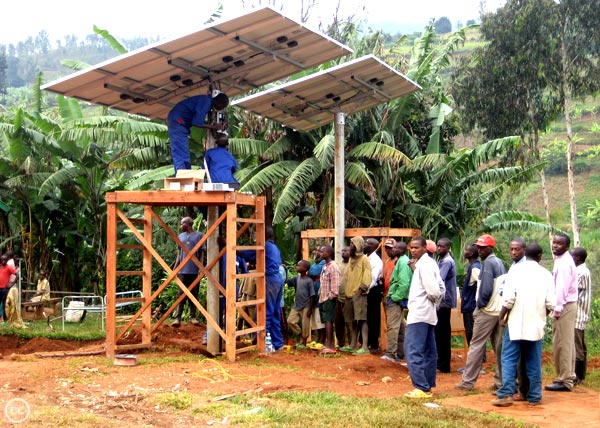 Global warming and environmental damage from the
fossil-fuel industry already affect all of us, although
responsibility lies primarily with the rich industrialized countries
and the newly industrializing powers. Africa is the most vulnerable
continent, but extreme weather and sea-level rise have hit New
Orleans and New Jersey as well as Lagos.
Global warming and environmental damage from the
fossil-fuel industry already affect all of us, although
responsibility lies primarily with the rich industrialized countries
and the newly industrializing powers. Africa is the most vulnerable
continent, but extreme weather and sea-level rise have hit New
Orleans and New Jersey as well as Lagos.
|
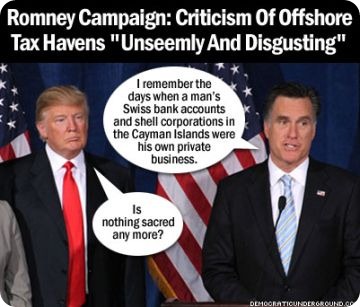 Inequality and tax evasion are growing both
within and between countries, while the rich on all continents funnel
their wealth into secret bank accounts scattered around the world. This erodes the public sector, starves countries of funds needed
for development, and drives up deficits.
Inequality and tax evasion are growing both
within and between countries, while the rich on all continents funnel
their wealth into secret bank accounts scattered around the world. This erodes the public sector, starves countries of funds needed
for development, and drives up deficits.
|
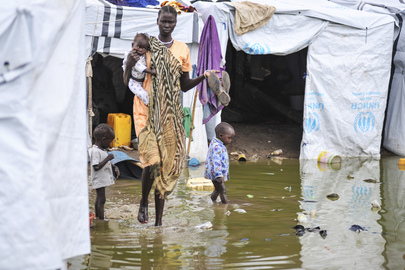 In responding to internal conflict, terrorism, and criminal violence,
leaders in Africa and around the world most often rely on militarized
responses that are ineffective and abusive of human rights.
Although leaders give lip service to addressing the root causes, it
is standard formulas of repression and funding for security forces
that take priority in practice.
In responding to internal conflict, terrorism, and criminal violence,
leaders in Africa and around the world most often rely on militarized
responses that are ineffective and abusive of human rights.
Although leaders give lip service to addressing the root causes, it
is standard formulas of repression and funding for security forces
that take priority in practice.
|
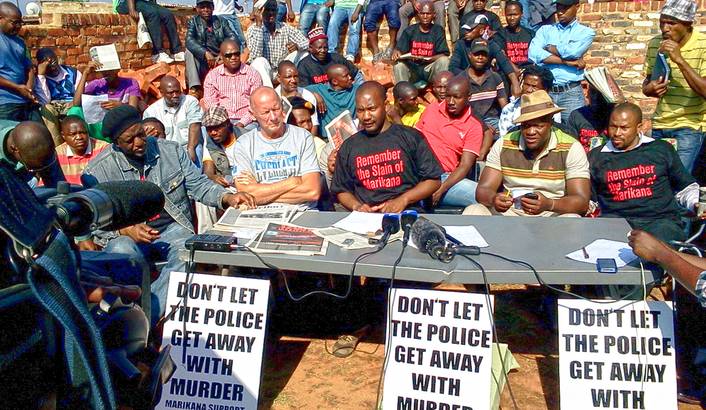 Politicians and investors speak of creating good jobs. In practice,
they most often promote a market-fundamentalist development model that sheds jobs
while increasing profits for the 1%.
Politicians and investors speak of creating good jobs. In practice,
they most often promote a market-fundamentalist development model that sheds jobs
while increasing profits for the 1%.
|
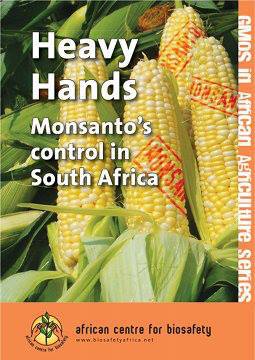 International agencies agree that small farmers are key to
addressing poverty and food insecurity in Africa. But commercial
monopolization of seeds and land grabs by both foreign
and domestic investors make a mockery of international pledges.
International agencies agree that small farmers are key to
addressing poverty and food insecurity in Africa. But commercial
monopolization of seeds and land grabs by both foreign
and domestic investors make a mockery of international pledges.
|
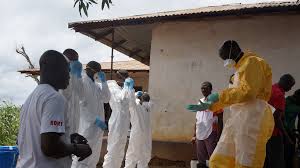 According to international law, health is a fundamental human right. Both national governments and
the international community have the responsibity to ensure that this right is
guaranteed in practice to everyone. Rich countries in particular have the
responsibility to contribute their fair share to achieving this goal.
According to international law, health is a fundamental human right. Both national governments and
the international community have the responsibity to ensure that this right is
guaranteed in practice to everyone. Rich countries in particular have the
responsibility to contribute their fair share to achieving this goal.
|
Most recent bulletins on continent-wide and global issues
January 23, 2023 Update from Editor on Future Plans
http://www.africafocus.org/docs23/af-230123.php
When President Barack Obama hosted his US-Africa Summit in August 2014, my roundups in AfricaFocus Bulletin featured critical analysis of the likely outcome and the issues that were likely to be ignored, as well as alternate viewpoints by civil society groups.
November 15, 2022 Africa/Global: "Daughter of Africa" Steps Up to Lead on Global Crises
http://www.africafocus.org/docs22/af-221115.php
At the climate summit in Egypt last week, President Biden pledged that the United States would take the lead on the climate crisis. But his speech was eclipsed the same day by a powerful call to action by Prime Minister Mia Mottley of Barbados.
October 25, 2022 Africa/Global: Remembering Valeriano Ferrão and Charles Sherrod
http://www.africafocus.org/docs22/af-221025.php
Valeriano Ferrão died in Maputo, Mozambique, on October 2, 2022, at the age of 83. Charles Sherrod died in Albany, Georgia, on October 11, 2022, at the age of 85. As far as I know, the two had never met. And they were very different people. But for me, they epitomize the shared values of solidarity and integrity that were central to the movements they represented.
October 10, 2022 AfricaFocus 3.0: Not ´A Nation of Immigrants´
http://www.africafocus.org/docs22/af-221010.php
Coming in 2023: AfricaFocus 3.0
July 20, 2022 Africa/Global: Oligarchs of All Nations
http://www.africafocus.org/docs22/books2207.php
"Biden Concedes Defeat on Climate Bill as Manchin and Inflation Upend Agenda" - New York Times, July 16, 2022
June 9, 2022 Africa/Global: Ukraine, Africa, and Our Planet
http://www.africafocus.org/docs22/upd2206.php
“An end to this terrible war based on dialogue must be the international community’s highest priority. Support to the
people of Ukraine must be matched by efforts to advance Russian/Ukrainian negotiations, European security dialogue,
and wider risk-reduction measures to prevent nuclear escalation.” - The Elders, May 25, 2022
May 11, 2022 Africa/Global: Debt, IFFs, and Inequality in Africa
http://www.africafocus.org/docs22/ineq2205.php
“43 African governments are facing expenditure cuts totalling $183 billion
(equivalent to 5.4 percent of GDP) over the next five years, reveals new
analysis from Oxfam and Development Finance International (DFI) today. If
these cuts are implemented, their chances of achieving the UN’s Sustainable
Development Goals will likely disappear.” - Oxfam International and
Development Finance International
April 21, 2022 Africa/Global: Climate Put on Back Burner by War
http://www.africafocus.org/docs22/clim2204.php
While media attention focuses on the cost in human lives on the ground in Europe, the direct and indirect effects are also leading to many more lives lost around the world, not least in vulnerable countries on the African continent, according to a report issued on April 13 by the United Nations. The direct effects alone are projected to devastate the world economy (https://reliefweb.int/report/world/global-impact-war-ukraine-food-energy-and-finance-systems).
March 25, 2022 Africa/Global: Updates from AfricaFocus
http://www.africafocus.org/docs22/upd2203.php
This is the first AfricaFocus Bulletin since January. Towards the end of that
month, major issues with my home office computer systems crippled the
interface which I normally use to publish the Bulletin, and catching up on a
variety of medical issues also limited what I could do. Nothing life
threatening, but lots of doctor appointments.
November 23, 2021 Africa/Global: From Climate Denial to Deceit and Delay
http://www.africafocus.org/docs21/cop26-2111.php
Asad Rehman of War on Want spoke to the presidency of COP26 with words that
resonated far from Glasgow: “The rich have refused to do their fair share,
more empty words on climate finance. You have turned your backs on the poorest
who face a crisis of Covid, economic and climate apartheid because of the
actions of the richest. It is immoral for the rich to talk about the future of
their children and grandchildren when the children of the Global South are
dying now.” Less than 2 minutes.
Watch here!
November 2, 2021 Africa/Global: The Heat is On! Time to Act!
http://www.africafocus.org/docs21/clim2111.php
The warnings are consistent and devastating, across the political spectrum
from the International Monetary Fund from climate activists mobilizing at the
climate summit in Glasgow and around the world. There are only eight years to
have any chance of bending the curve of fossil fuel emissions sufficiently to
avoid mounting climate chaos. Predictions are also consistent that the
government officials gathered at the summit will continue to let promises and
belated minimal policy shifts substitute for significant action.
October 15 , 2021 Africa/Global: Hardly a Dent in #VaccineApartheid
http://www.africafocus.org/docs21/vac2110.php
“Millions of people remain at risk of dying from COVID-19 because high-income
countries (HICs), including the US, continue to hoard excess vaccine doses,
warns a new report released [on October 11] by Doctors Without
Borders/Médecins Sans Frontières (MSF). The international medical humanitarian
organization is calling on governments to commit to a concrete plan to
redistribute vaccine doses to low- and middle-income countries (LMICs) via
COVAX or regional procurement bodies by the end of October.”
May 17, 2021 Africa/Global: Decolonizing Medical Technology
http://www.africafocus.org/docs21/mal2105.php
“A continent of 1.2 billion people should not have to import 99% of its vaccines. But that is the tragic reality for Africa. Fixing the lack of home-grown manufacturing capacity has become a top priority for Africa’s policymakers. Last week, 40,000 people, including researchers, business leaders and members of civil-society groups, joined heads of state for a two-day online summit designed to share the latest developments and kick-start fresh thinking on how to bring vaccine manufacturing to Africa.” - Nature magazine editorial, April 21, 2021
May 3, 2021 Africa/Global: African-Language Literature in Global Scholarship
http://www.africafocus.org/docs21/aflit2105.php
“Broad early modern comparative projects often fail to address Africa
at all. A search of the MLAIB [Modern Language Association
International Bibliography] finds that the number of pieces published
in the last thirty years on the subject of 'globalization' is in the
thousands, and yet only 5 per cent of them address Africa or African
countries. When it comes to eighteenth-century studies, the exclusion
is total: not one of the pieces on globalization addresses Africa or
African countries. Not one. … This is more than unfortunate. No
arena of study can be successful that has Africa as a lacuna. “ —
Wendy Laura Belcher
|

